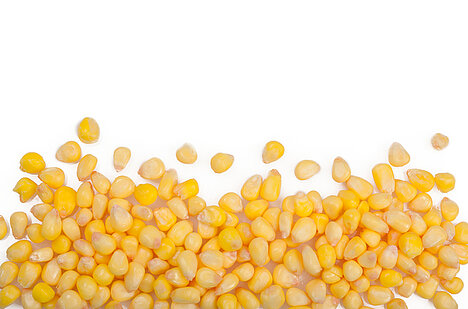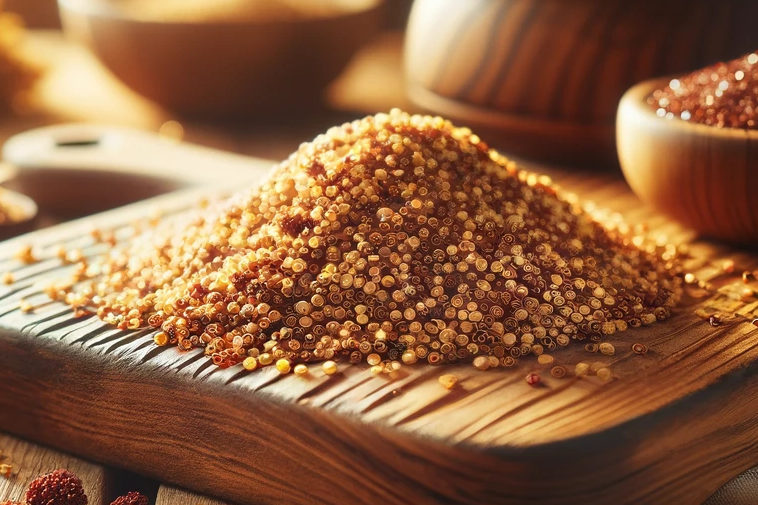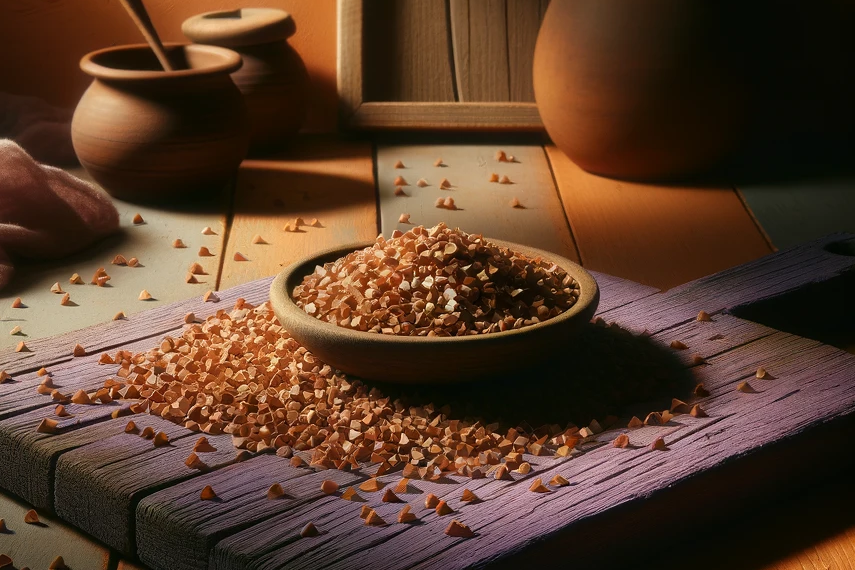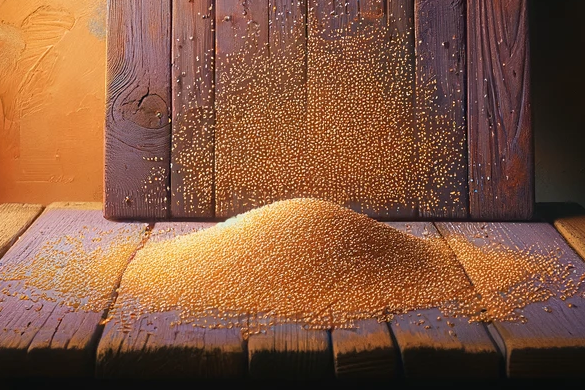Corn flakes

What are corn flakes?
Corn flakes are a by-product of corn processing. They consist of the endosperm of the maize kernel, which is separated from the husk and the germ. The corn flakes are then heated and pressed to give them a firm shape. They have a yellow color and a mild taste.
Corn flakes mainly contain carbohydrates, which serve as a source of energy for your dog. They also contain some protein, fat, fiber, vitamins and minerals. Corn flakes are gluten-free and therefore suitable for dogs with gluten intolerance.
What are the benefits of corn flakes for dogs?
Corn flakes can have several benefits for your dog's diet. Firstly, they can help to stabilize your dog's blood sugar levels, as they are digested slowly and do not cause sharp fluctuations. Secondly, they can aid your dog's digestion as they contain fiber, which stimulates intestinal activity. They can also increase your dog's feeling of satiety, which can be helpful for overweight dogs.
What are the disadvantages of corn flakes for dogs?
However, corn flakes are not suitable for every dog. For one thing, it can trigger allergies or intolerances if your dog is sensitive to corn. Typical symptoms include itching, skin rash, diarrhea or vomiting. Secondly, they can lead to an oversupply of carbohydrates if your dog gets too much of them. This can lead to obesity, diabetes or other metabolic disorders.
How much corn flakes can my dog have?
The amount of corn flakes you can give your dog depends on various factors, such as his age, size, activity level and state of health. In general, however, corn flakes should only make up a small part of the daily food ration. As a rule of thumb, you can replace about 10 to 20 percent of the dry food with corn flakes. If you give your dog wet food, you should use correspondingly less corn flakes.
You should also make sure that your dog drinks enough water when it is given corn flakes, as they absorb a lot of liquid and can otherwise lead to constipation.
Corn flakes can be a useful addition to your dog's diet if you use them in moderation and with care. They can provide your dog with energy, help his digestion and make him feel full. However, you should make sure that your dog does not have an allergy or intolerance to corn and that it does not get too many carbohydrates. If you pay attention to these points, you can treat your dog to a portion of corn flakes from time to time.
If you notice any signs of hypersensitivity or poisoning in your dog, you should see your vet immediately. We are not a substitute for a vet, but we try to be as accurate as possible. Every dog reacts differently and we recommend you get a second opinion or consult your vet if in doubt.
Stay healthy and take good care of your four-legged friend!😊
Similar to Corn flakes
Amaranth flakes are the pressed seeds of the amaranth plant, which belongs to the foxtail family. Amaranth is not a real grain, but a so-called pseudo-cereal with similar properties. Amaranth was...
Buckwheat flakes are made from buckwheat, a pseudocereal that botanically belongs to the knotweed family. Buckwheat is gluten-free and has an aromatic, nutty taste. It has been cultivated and...
Oat flakes are a cereal product made from the grains of the oat plant. The grains are cleaned, steamed, roasted and rolled into flakes. Oat flakes are rich in fiber, protein, vitamins and minerals....
Millet flakes are made from millet grains, a gluten-free grain known for its high nutrient content. A special steaming and rolling process is used to form the grains into flakes, making them easier...



